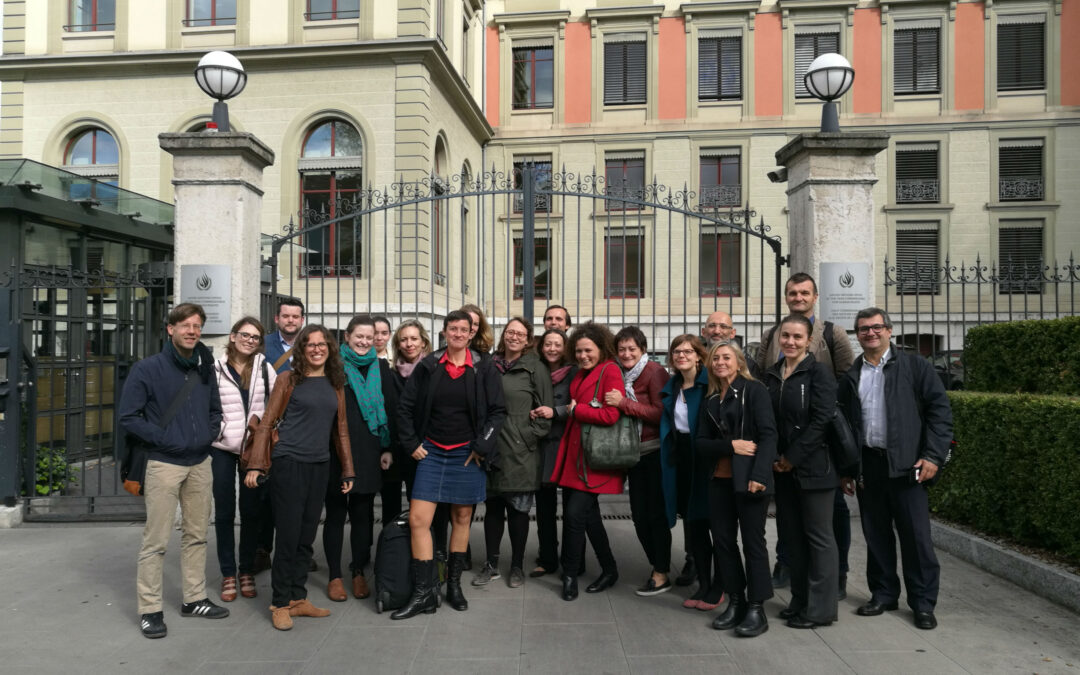
Oct 4, 2017 | Agendas, Events, News
Today starts a five-day Strategic Litigation Retreat for lawyers in Ferney-Voltaire, France organized by the ICJ-EI as part of the EU and OSI funded FAIR project.
Twenty lawyers from Bulgaria, Germany, Greece, Italy, Ireland, Malta and Spain will be meeting with experts and among themselves in order to strategize about their cases of access to justice for migrant children and on accessing international human rights mechanisms.
The retreat is taking place from 4 to 8 October in a close proximity to Geneva, which allows for access to UN treaty bodies experts.
The group will meet with Members of the UN Committee on the rights of the child and the UN Committee on Economic, Social and Cultural Rights and experts from the treaty bodies’ secretariat on individual complaints and on inquiries.
The participants will also have a chance to discuss litigation strategies with experts from the European Court for Human Rights, experts from civil society organizations with long-standing experience in strategic litigation, such as the AIRE Center, ICJ, DCI Belgium or Child Rights Connect.
All the participating lawyers took part in the national trainings organized, through 2016 and 2017, by the ICJ and its national partners.
The trainings were focused on the right to be heard and procedural rights of migrant children, the right to family life, economic, social and cultural rights, detention and on how to access international human rights mechanisms in order to allow for effective access to justice for migrant children.
Out of all the participants, this Strategic Litigation Retreat, brings together three selected lawyers from each of the national trainings.
In the same time, the project management group of the FAIR project, composed of national partners and Child Rights Connect will meet and will contribute to some parts of the Retreat.
The Retreat will use as a basis the draft training materials prepared by the ICJ (to be published an the end of 2017) and the ICJ Practitioners Guide no. 6: Migration and International Human Rights Law.
The FAIR project co-funded by the Rights, Equality and Citizenship Programme of the European Union and OSIFE.
See more information about the national trainings on the rights of migrant children within the FAIR project here: Spain, Italy, Bulgaria, Malta, Greece, Ireland, Germany (photo)
Download the agenda here: Universal-StrategicLitigationRetreat-News-Events-Agendas-2017-ENG
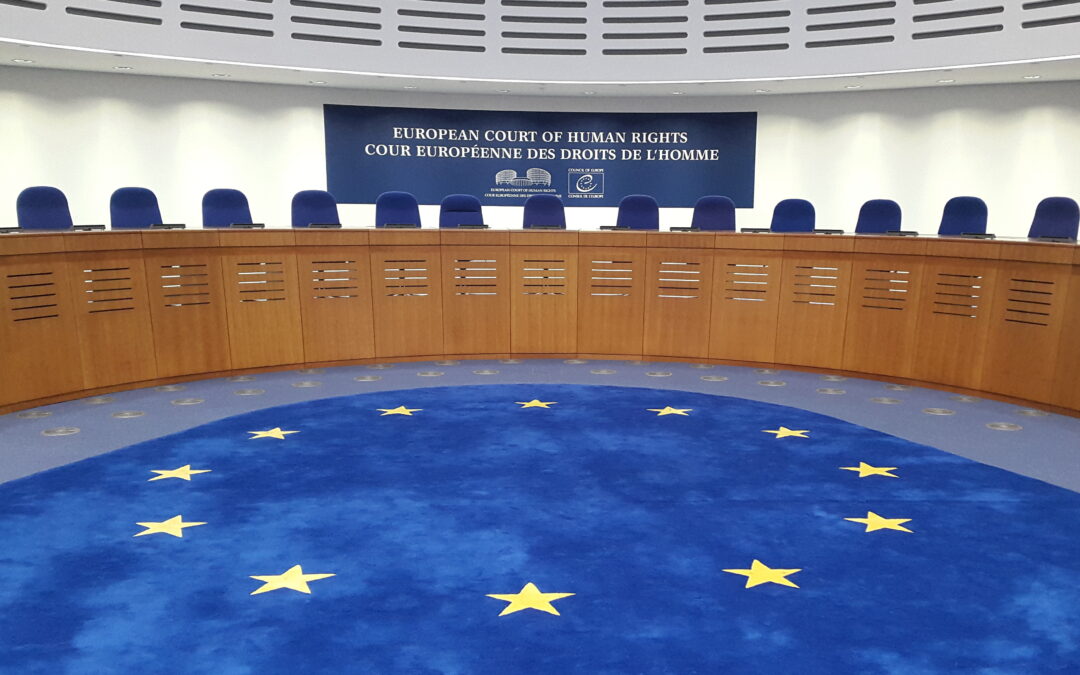
Oct 3, 2017 | Advocacy, Cases, Legal submissions
On 2 October, the ICJ and Amnesty International submitted an intervention before the European Court of Human Rights in the case Ecodefence and others v the Russian Federation, Application no. 9988/13 and 48 other applications, which concern labeling NGOs as foreign agents.
In this submission, the applicants provided the Court with an analysis, based on international law sources, of:
a) the scope of application of rights to freedom of expression and association guaranteed under Articles 10 and 11 of the European Convention on Human Rights (ECHR or the Convention) to restrictions on the activity of non-governmental organisations (NGOs);
b) application of the principle of legality to such restrictions;
c) the legitimacy of the aim, necessity and proportionality of measures regulating NGOs, including restrictions on funding, burdensome reporting requirements, sanctions and the stigmatizing effect of labelling NGOs as “foreign agents”; and
d) the scope of permissible restrictions under Article 18 of the ECHR, particularly the question of interferences used for purposes other than those which fall under Articles 10 and 11 of the Convention.
The submission addresses the obligations of State parties to the ECHR with account taken of the other international law obligations, such as those under the International Covenant on Civil and Political Rights (ICCPR) as well as other relevant standards under international law.
Russia-ECtHR-AmicusBrief-Ecodefence-legalsubmissions-2017-ENG (download the third party intervention)
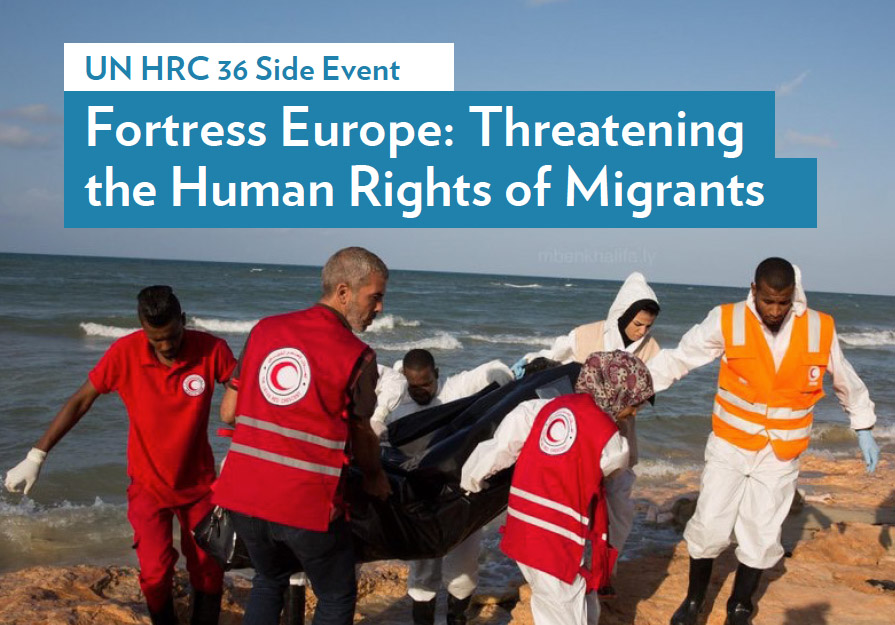
Sep 25, 2017 | Events, News
This side event at UN HRC 36 will take place on 26 September 2017, 11.00-12:30, Room XV, Palais des Nations, Geneva.
The side event, hosted by Lawyers for Justice in Libya and the Cairo Institute for Human Rights Studies, will discuss the role of European Union (EU) Member States in the migration crisis and how their policy on migration is threatening the human rights of migrants. The panel will discuss and make recommendations to EU Member States, Libya and the Human Rights Council to ensure accountability for human rights violations being committed against thousands of migrants.
Speakers:
Conor Kenny Doctors Without Borders
Elham Saudi Lawyers for Justice in Libya
Matteo De Bellis Amnesty International
Tareg Ben Ramadan Coalition of Libyan Human Rights Organisations
Chair:
Massimo Frigo International Commission of Jurists
Europe-Flyer side event-News-Event-2017-ENG (Flyer in PDF)
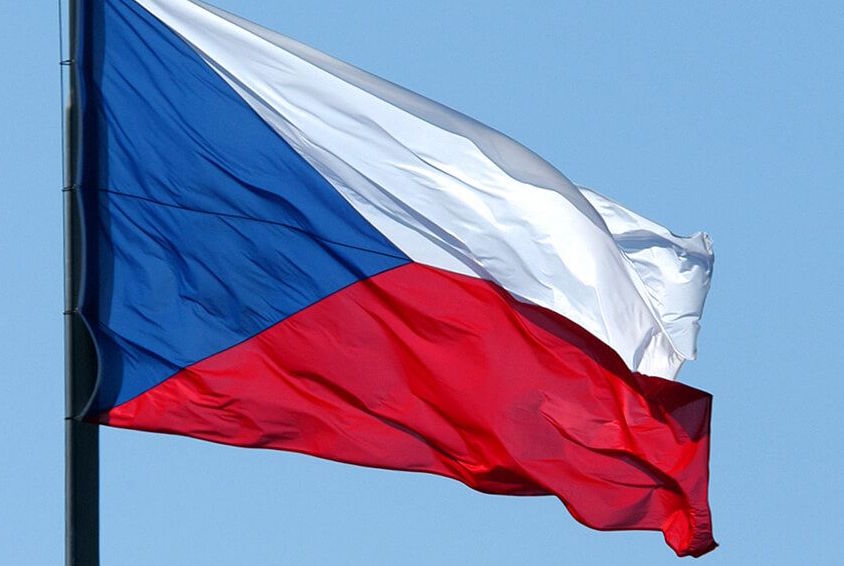
Sep 14, 2017 | Advocacy, Cases, Legal submissions, News
On 13 September, the European Committee of Social Rights decided on the admissibility of the collective complaint submitted by the ICJ and Forum for Human Rights, against the Czech Republic.
The Committee assessed the admissibility conditions set out in the Protocol and the Committee’s Rules and the Government’s objections on admissibility and declared the complaint admissible. The Czech Government has now two months to make written submissions on the merits of the complaint.
The complaint argues that the Czech Republic fails to ensure equal legal protection and participation of children below the age of criminal responsibility in the pre-trial stage of juvenile justice procedures.
The ICJ and FORUM submit that serious systemic flaws in the Czech juvenile justice system deprive a specific group of particularly vulnerable individuals – children below the age of criminal responsibility – of an adequate level of social protection and leave them at risk of inappropriate or unfair procedures leading to arbitrary punitive measures, in violation of Article 17 of the European Social Charter, both alone and read in conjunction with the principle of equality in the preamble to the Charter.
Europe-ECSR-ICJvCzechRepublic-ChildrenJustice-AdmissibilityDecision-2017 (download the Committee’s decision)
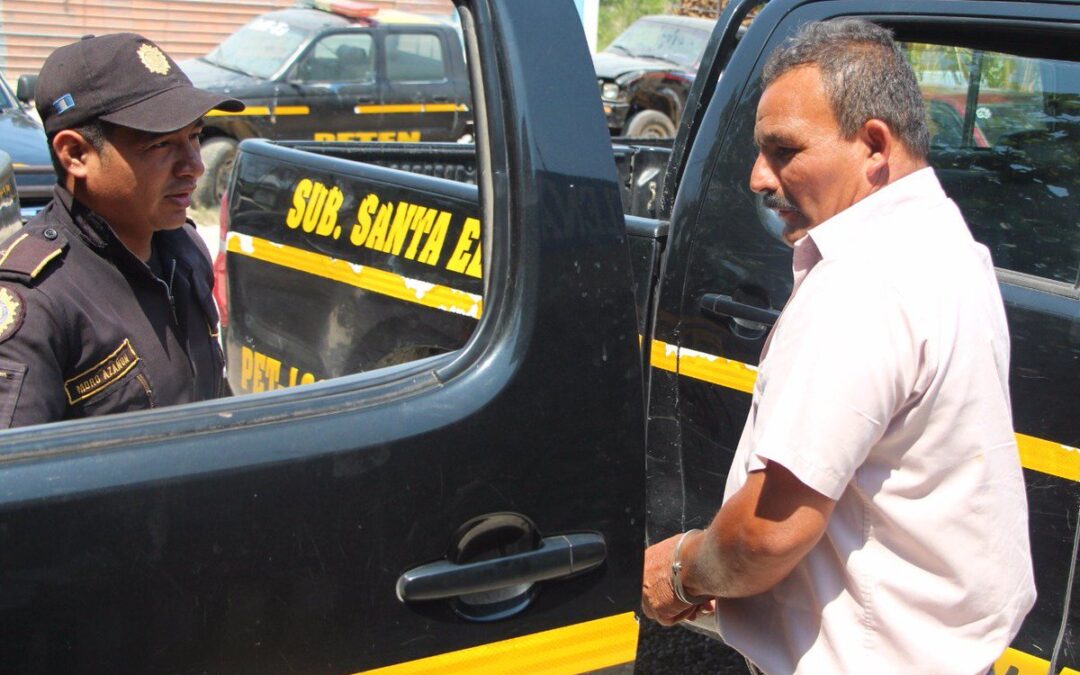
Jul 19, 2017 | Noticias
El 28 de marzo, el defensor de derechos humanos de la comunidad La Mestiza, don Jovel Tobar, fue detenido por efectivos de la Policía Nacional Civil.
Desde entonces, permanece detenido; el proceso lo instruye la Jueza Karla Hernández del Juzgado Pluripersonal de Primera Instancia, Narcoactividad y Delitos contra el Ambiente, por el presunto delito de Usurpación de Área Protegida.
El proceso penal contra Jovel Tobar y su detención, se dan como respuesta por sus actividades como defensor de derechos humanos.
En particular, la detención de Jovel Tobar se da cuando la comunidad de La Mestiza, junto a otras comunidades, habían logrado avanzar en el establecimiento de una mesa de diálogo de alto nivel con las autoridades guatemaltecas, para discutir su “Propuesta Alternativa de Desarrollo Integral y Sostenible de las Comunidades afectadas por la declaratoria de Áreas Protegidas de Laguna del Tigre y Sierra Lacandón”.
Desde el inicio, el proceso penal fue declarado en reserva, denegándole a Jovel Tobar su derecho a un juicio público, en violación a los artículos 14 del Pacto Internacional de Derechos Civiles y Políticos y 8 de la Convención Americana sobre Derechos Humanos.
La CIJ considera que el proceso penal contra Jovel Tobar constituye una forma de criminalización de la legítima protesta social y del ejercicio de la defensa de los derechos humanos y que su detención es arbitraria.
La CIJ recuerda que la justicia debe ser administrada por jueces independientes, imparciales, idóneos, profesionales y éticos, ya que de ello depende, en última instancia, que exista una recta administración de justicia, garante de los derechos humanos.
Asimismo, fiscales y jueces deben abstenerse de perseguir penalmente y criminalizar el ejercio legítimo de la defensa de los derechos humanos.
La CIJ ha podido constatar que en los casos de persecución penal de defensores de derechos humanos, fiscales y jueces han criminalizado el ejercicio de la defensa de los derechos humanos.
En tal sentido, la CIJ exige que los órganos encargados de establecer la responsabilidad de jueces y juezas, inicien una investigación en este caso, para determinar si la función de la Jueza del Juzgado Pluripersonal de Primera Instancia, Narcoactividad y Delitos contra el Ambiente, se ha llevado a cabo en forma independiente e imparcial.
Dicha investigación debería cuando menos determinar: a) si existían argumentos objetivos y válidos para declarar el proceso bajo reserva; b) si se ha respetado el principio de celeridad en el proceso; c) las razones por las cuáles no se otorgó una medida sustitutiva a favor de Jovel Tobar; y d) cualquier otro aspecto, que se relacione con la falta de independencia o con la parcialidad de la jueza mencionada.
Ramón Cadena, Director de la CIJ para Centro América finalizó expresando: “Todo parece indicar que al señor Tobar se le persigue por la vía del Derecho Penal, para dar un castigo ejemplar a toda la comunidad La Mestiza e intimidar a sus pobladores. Ojalá que la Comisión Internacional contra la Impunidad (CICIG) inicie una investigación en el departamento de El Petén por este y otros casos de criminalización. Exigimos la inmediata e incondicional liberación del Señor Jovel Tobar y el archivo de la causa penal en su contra.”









